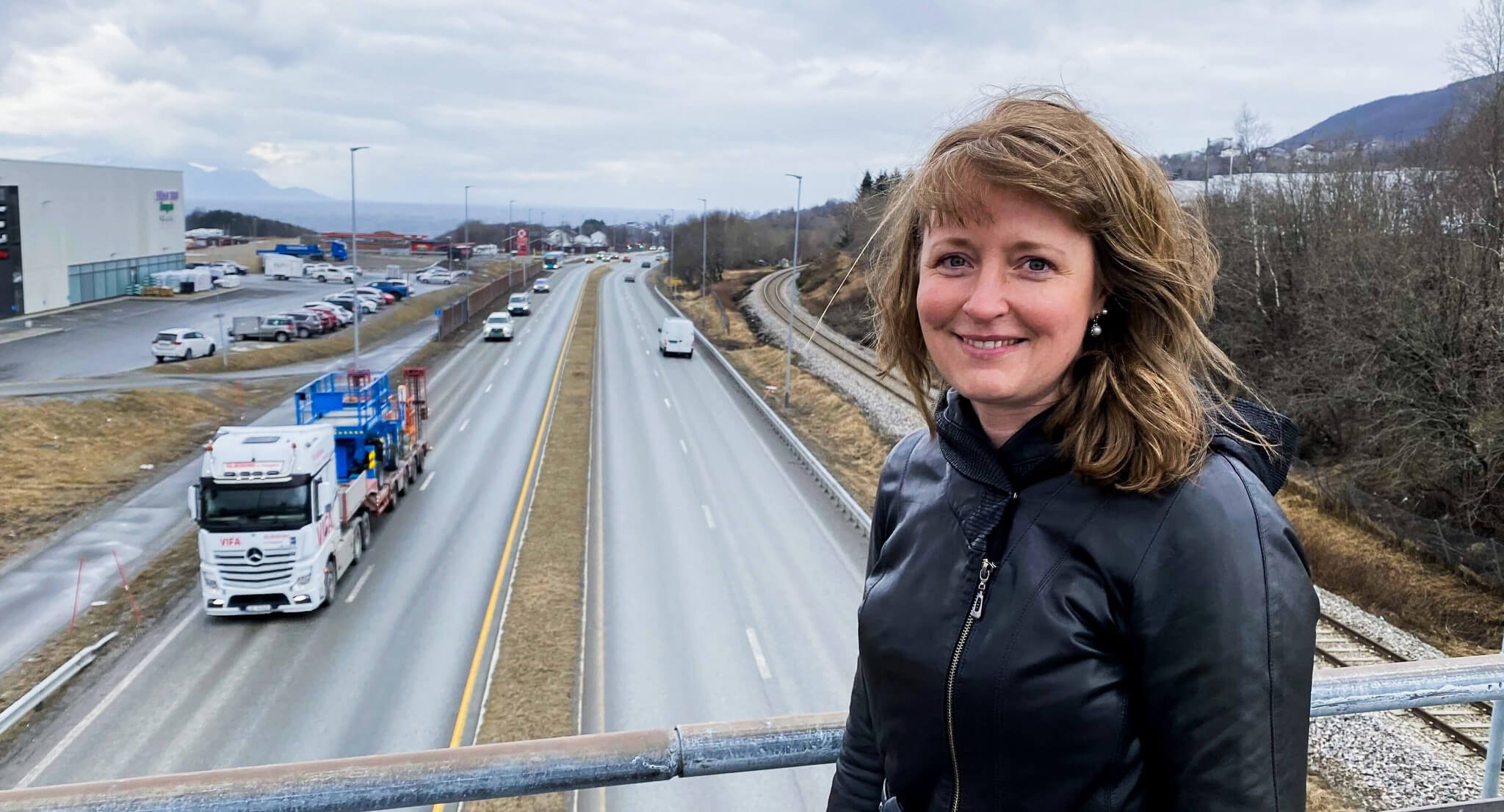🇳🇴 Impressed by biogas in the North: Interview with Ingelin Noresjø

By Rå Biopark
She leads the green land transport program at NHO and is impressed by the six waste companies behind Rå Biopark.
– It’s a brilliant move. Here, solid owners have joined forces to contribute to the green shift in the north by turning waste into liquid biogas. It is crucial that they succeed and that the pumping stations in Alta, Tromsø and Bjerkvik become operational. But I miss Salten in this company, and that a pumping station is established in Fauske, which is a natural hub.
Change
Ingelin Noresjø gets excited when she talks about climate-neutral fuels to replace gasoline and diesel. The former county councillor for industry in Nordland and state secretary now heads one of the most important programs in NHO.
– “It is crucial that we bring about a change and that fossil fuels are replaced with biogas, electricity and hydrogen, because the transport industry is the largest source of greenhouse gas emissions in Norway in the non-ETS sector and alone accounts for over 30 percent of emissions.
Global significance
– What impresses me about biogas is that it is a circular resource. The fact that the owners behind Rå Biopark enable the production of biogas in Northern Norway will not only contribute to the transportation industry in the region going fossil-free, but also send a strong signal to the rest of the world that it is possible to produce biogas in the north. And then it is possible to do it all over the world, says Noresjø, who cannot praise enough the initiative to contribute to a fossil-free transportation industry in the north.
Social responsibility
Rå Biopark plans to produce over 60,000 tons of food waste, sludge and fish waste from 41 municipalities in the north. The amount of biogas coming out of the plant in Skibotn is equivalent to well over five million liters of diesel.
– “There is a big demand for biogas in Europe, especially in Germany. But I really hope that the owners of Rå Biopark see their social responsibility and sell the energy locally, so that we can reduce our own climate emissions. Because here there are many companies that want to replace diesel with biogas.
Great interest
The program manager at NHO is experiencing great interest in the production of biogas throughout the country.
– Not only in Norway, but also in our neighboring countries, there is great interest in the use of biogas in the transport industry. The technology is known, the vehicles are available, even if there is a waiting time for delivery, and last but not least, biogas is a safe choice. It is important that we now remove the bottlenecks where we lack pumping stations, and this is where Rå Biopark comes in as an important player. It will give a huge boost to a green shift in the north. And we must not forget the residual product biofertilizer, which is also a scarce and expensive resource.
Rå Biopark plans to produce over 60,000 tons of food waste, sludge and fish waste from 41 municipalities in the north. The amount of biogas coming out of the plant in Skibotn is equivalent to well over five million liters of diesel.
– “There is a big demand for biogas in Europe, especially in Germany. But I really hope that the owners of Rå Biopark see their social responsibility and sell the energy locally, so that we can reduce our own climate emissions. Because here there are many companies that want to replace diesel with biogas.
Cooperation
The Green Land Transport Programme is a public-private partnership to realize the green shift in the transport industry. 27 business organizations and around 65 partner companies are involved in the programme.
– If we are to achieve the goals, we need an arena where we can share knowledge and interact to achieve a broad technological shift that results in rapid cuts in emissions. We are not involved in the operations of the various companies, but help to connect companies that want to transport their goods fossil-free with manufacturers.
– We pay close attention to those who are forward-looking and want change to bring about a green shift. For a northerner, it is particularly gratifying that Rå Biopark is at the forefront,” says Noresjø.
This article was produced by Rå Biopark.
To join the Arctic Business Journal network as a content partner, contact us at [email protected].
This article has been fact-checked by Arctic Business Journal and Polar Research and Policy Initiative, with the support of the EMIF managed by the Calouste Gulbenkian Foundation.
Disclaimer: The sole responsibility for any content supported by the European Media and Information Fund lies with the author(s) and it may not necessarily reflect the positions of the EMIF and the Fund Partners, the Calouste Gulbenkian Foundation and the European University Institute.
